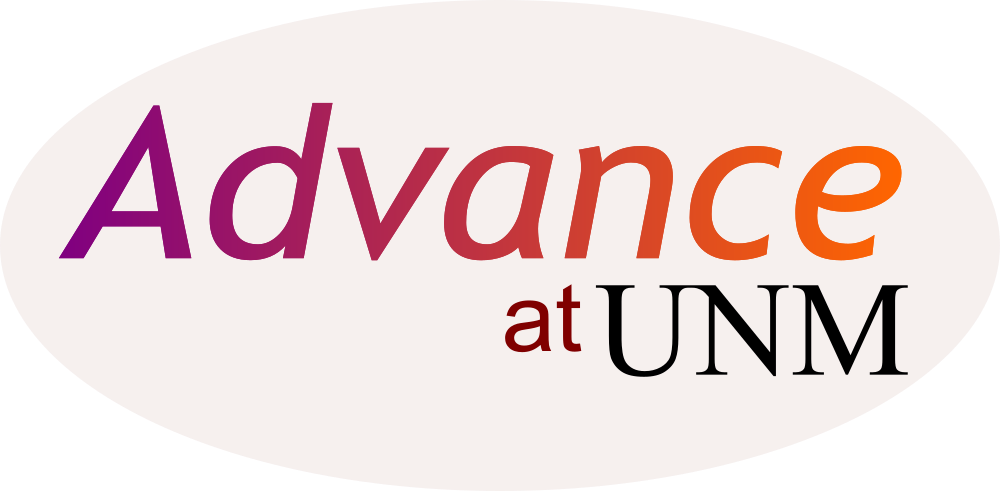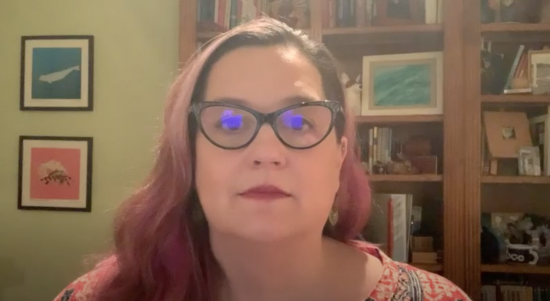STEM Shoutout: Dr. Heather Canavan
UNM professor spearheads COVID-19 relief and education efforts for community

Dr. Heather Canavan, a professor of Chemical and Biological Engineering, is addressing the concerning trend of people attempting to make hand sanitizer out of denatured alcohol, which is a highly toxic substance.
Canavan was first made aware of this issue through a colleague who had noticed the absence of denatured alcohol in stores because of people planning to make homemade hand sanitizer. Canavan also noticed denatured alcohol sold out on Amazon and saw reviews from individuals saying it works as a hand sanitizer.
Denatured alcohol, also commonly known as wood alcohol, can be fatal if ingested or lead to blindness. Even if it is not ingested, denatured alcohol can still be a significant danger if inhaled or absorbed through the skin like it would be if used as hand sanitizer.
Extremely concerned, Canavan knew she had to get the message out fast, and what better way to do that than through social media, which Canavan says is the place people are getting most of their information. Teaming up with Advance at UNM, Canavan is addressing this problem through a brief video found here, which she has circulated on social media with the intent of spreading awareness on this highly toxic practice.
“If this was five years ago I would have made a 30-minute video, but I realized no one would watch that, they’re going to watch 90 seconds and that’s all you really need. You have to be able to engage people and say this is why it’s important. You don’t have to teach things in a way that only the people who are super motivated will understand. If you make it in a way everyone can understand, you’ve achieved what you wanted, which is getting the message across,” Canavan said.

Along with this, Canavan has spearheaded her own sewn facemask and 3D printing efforts to give to the
community and health care workers in need.
“Different areas respond differently based on population needs and what supplies they’ve got. This was on my mind and got me thinking there’s a lot of people who want to help and that is a resource that can be really positive. I was on the NextDoor app and saw people making sewn masks and I thought all of these people who have sewing machines and 3D printers could be doing these things at home could be real resource even if it’s just one person sewing 10 masks in a week that’s 10 more we would have had otherwise,” Canavan said.

Currently, Canavan has a team of about 50 volunteers, made up of students and members from the community, which she has dubbed ScrubHub ABQ. With approximately 20 sewers, Canavan has been able to produce about 500 fabric face masks, a big portion of which has been donated to the Albuquerque Area Indian Health Board.
In addition, Canavan and few volunteers have access to 3D printers, which they have taken advantage of in order to make “ear savers,” a small plastic extension used to hold the straps of face masks and relieve irritation to the ear where they normally would sit. Healthcare workers are especially in need of these considering how long they must wear masks.
“Hospital workers can get big irritations and anytime you have broken skin you are more likely to contract something. The ear savers can help with both fabric and surgical masks so people can wear them longer and are more comfortable,” Canavan said.

Canavan and her team have produced more than 40 ear savers, and more are being made daily. The first batch was donated to Simply Salud, a non-profit healthcare practice in Albuquerque. Another batch is scheduled to be delivered to healthcare workers at the UNM Hospital.
Canavan says the pandemic has brought back old feelings which she has applied to her current inspiration.
“When I was diagnosed with cancer in 2015, I was hearing the same stuff everybody’s hearing now: ‘we’re never going back to normal, old normal is gone and there’s going to be a new normal.’ It sounds negative and is hard to hear. But I learned then, just like many other cancer survivors and others do, and I hope that we will see again, that the ‘new normal’ while different doesn’t have to be bad. I think if we have that kind of hope—that we’re doing something, can adapt, can help—that is all positive. I’ve tried to focus on that, and have everybody who participates in this project focus on that, too. It’s important to feel like we’re making a difference to someone,” Canavan said.
Canavan says she encourages anyone with ideas of new problems to address, related to the virus, to come forward. “If anyone has an idea, they want to share that we could work on, I’m all ears! We have this group of people who are very smart, dedicated, and hardworking that can help with problems that may have been overlooked,” Canavan said.

